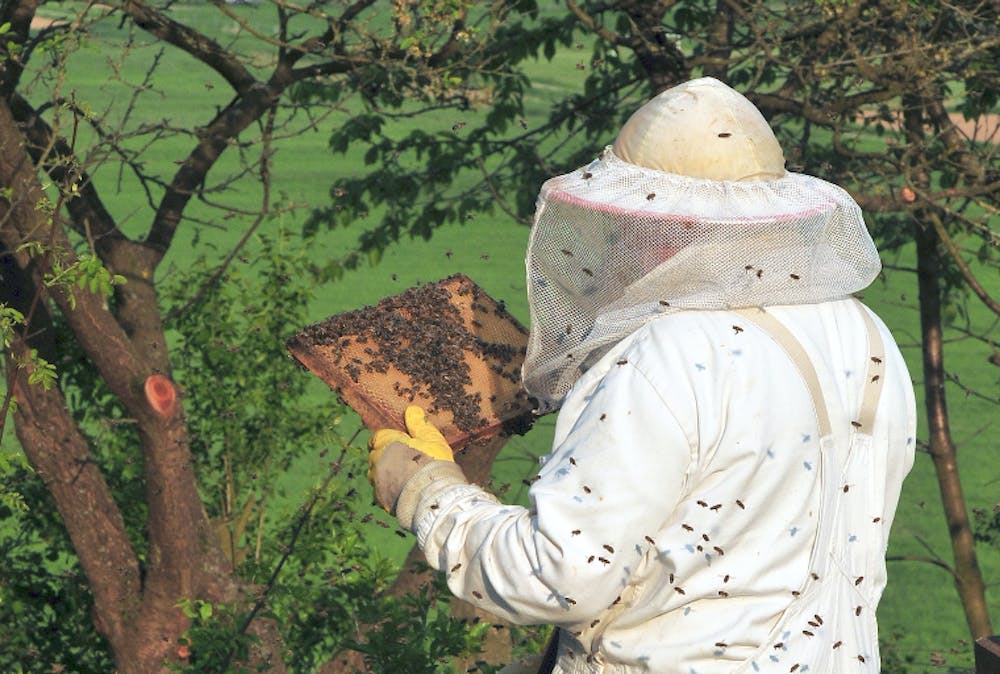The use of antibiotics has marked a new era in science and medicine with its contribution to the treatment of infectious disease. But contrary to the belief that antibiotics are a recent discovery, research has shown traces of tetracycline in human skeletal remains dating back to between 350 and 550 CE.
Tetracycline is a common antibiotic that has been used for the treatment of various bodily bacterial infections, including syphilis, gonorrhea and chlamydia. It has also been used for infections caused by animals or contaminated food.
A study conducted by researchers from The University of Texas at Austin has revealed that the lifespan of honeybees exposed to tetracycline is cut in half compared to that of unexposed bees.
The tetracycline exposure was accompanied by an elimination of the bees’ beneficial gut bacteria, making them vulnerable to harmful pathogens.
The loss of healthy bacteria that blocks pathogens, breaks down toxins and promotes the absorption of nutrients from food means the organism becomes more susceptible to disease and death. In addition to the lack of gut microbes, there was an increased presence of Serratia, a pathogenic bacterium.
“Our study suggests that perturbing the gut microbiome of honeybees is a factor, perhaps one of many, that could make them more susceptible to declining and to the colony collapsing. Antibiotics may have been an underappreciated factor in colony collapse,” Nancy Moran, professor of integrative biology at UT Austin, said.
The results of this study may indicate pitfalls of antibiotic overuse in animals and even humans. Additionally, it may attribute the colony collapse disorder that plagued American beekeepers a decade ago, to antibiotics rather than to exposure to pesticides, habitat loss or bacterial infections.
Beekeepers regularly apply antibiotics to hives several times a year in an effort to prevent bacterial infections from negatively influencing bee larvae.
“It’s useful for beekeepers to use antibiotics to protect their hives from foulbrood,” Kasie Raymann, postdoctoral researcher at the University of Texas, said. “But this work suggests that they should also consider how much and how often they’re treating hives.”
Bees and humans share a gut microbiome, which performs functions that include modulating behavior, development and immunity. Specialized gut bacteria are a second shared characteristic of the two species, and these similarities establish bees as a valid model for the human gut microbiome.
So the findings of this study are not too far from results that would be obtained from human subjects and indicate the extent to which the results are just as applicable to humans as to bees.
“We aren’t suggesting people stop using antibiotics,” Moran said. “Antibiotics save lives. We definitely need them. We just need to be careful how we use them.”
The research was conducted by obtaining hundreds of bees and relocating them to a lab. A select group of bees was given a sterilized sugar solution, while another control group was given a sugar solution with antibiotics.
The bees of the two groups were painted with a specific color in order to identify them, and the feeding was repeated for five days before the bees returned to their hives. After returning, the number of living bees was tallied, and their gut microbiome composition was sampled.
Three days following the bees’ return to the hive, around two-thirds of the bees in the control trial were alive, but only a third of the bees in the antibiotic-treated trial were alive.
For a follow-up experiment the two groups of bees were subjected to Serratia bacteria, and the outcome was similar but with even more drastic proportions. This research undoubtedly brings confusion into the future of antibiotics, but, more importantly, it also warns consumers to be cautious of excessive antibiotic intake.





